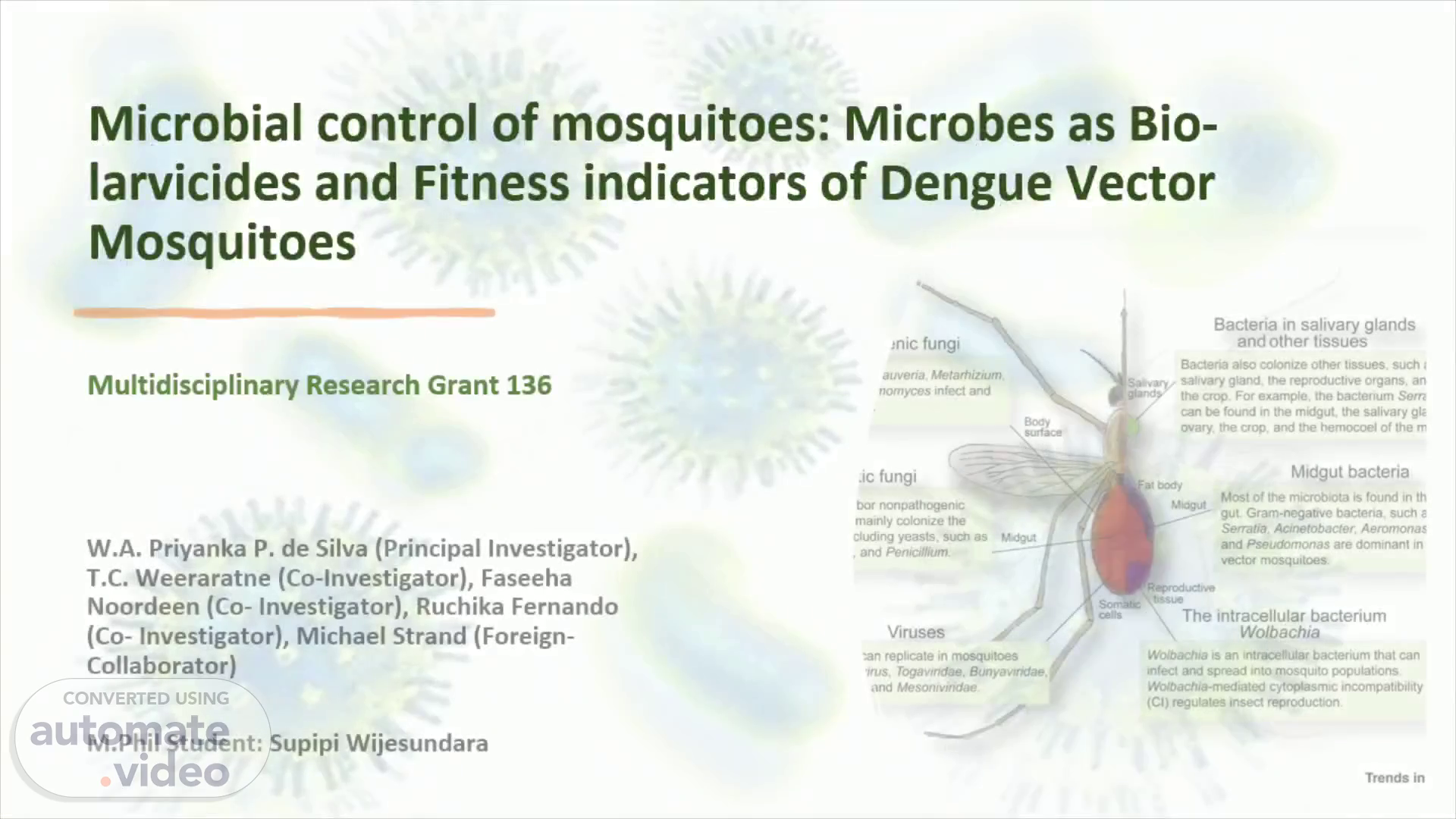
Page 1 (0s)
[Audio] Microbial control of mosquitoes: Microbes as Bio-larvicides and Fitness indicators of Dengue Vector Mosquitoes.
Page 2 (9s)
[Audio] Dengue is one of the devastating mosquito borne diseases where the transmission of the disease is involved with Aedes aegypti and Aedes albopictus. Use of symbiotic microorganisms into mosquito controlling is an emerging research area which provides an efficient alternative for chemical insecticides and other mosquito control aproaches to reduce the disease burden. These symbiotic microbes in mosquitoes are important in different aspects of mosquito development..
Page 3 (30s)
[Audio] We characterized the microbiome of Aedes aegypti and Aedes albopictus in Sri Lanka and identify the microbes that affect the vectorial capacity and fitness of female mosquitoes as well as the larvicidal activity of these microbes..
Page 4 (42s)
[Audio] Mosquito larvae and eggs were collected from different geographical regions in Sri Lanka. Microbes from mosquito breeding sites were cultured and identified using morphological and molecular techniques. Germ free mosquito larvae and adults were prepared and bio assays were performed..
Page 5 (1m 4s)
[Audio] Identiti was confirmed for twenty different naturally occurring microbes which affect the growth and development of dengue mosquitoes..
Page 6 (1m 12s)
[Audio] Body size index values obtained from different populations of dengue mosquitoes suggest the effect of microbes on fitness of vector mosquitoes.
Page 7 (1m 22s)
[Audio] Isolated Pseudomonas mossellii bacterium showed strong larvicidal properties against dengue vector mosquitoes.
Page 8 (1m 32s)
[Audio] Nearly 200 breeding sites were investigated Significant association between the composition of the microbiome and the type and the locality of the breeding ground of dengue vector mosquitoes were observed.. Aedes albopictus was identified as the most dominant species (93.22%) in the breeding environments. Morphological identification of mosquito microbiome confirmed nearly 30 bacterial strains Blast analysis of gDNA sequences identified 20 microbes, which are common in breeding sites and egg surfaces of dengue vector mosquitoes. Ten isolated bacterium strains showed significant effect on the growth and development of dengue larvae. These bacteria substantially affect the egg hatchability, growth and development and the fitness of dengue vectors. Pseudomonas mossellii Strain showed strong larvicidal properties. A noticeable change of bacterial composition during the development were observed and a few Enterobacter species were identified with the ability of vertical transmission through mosquito life cycle stages and generations..